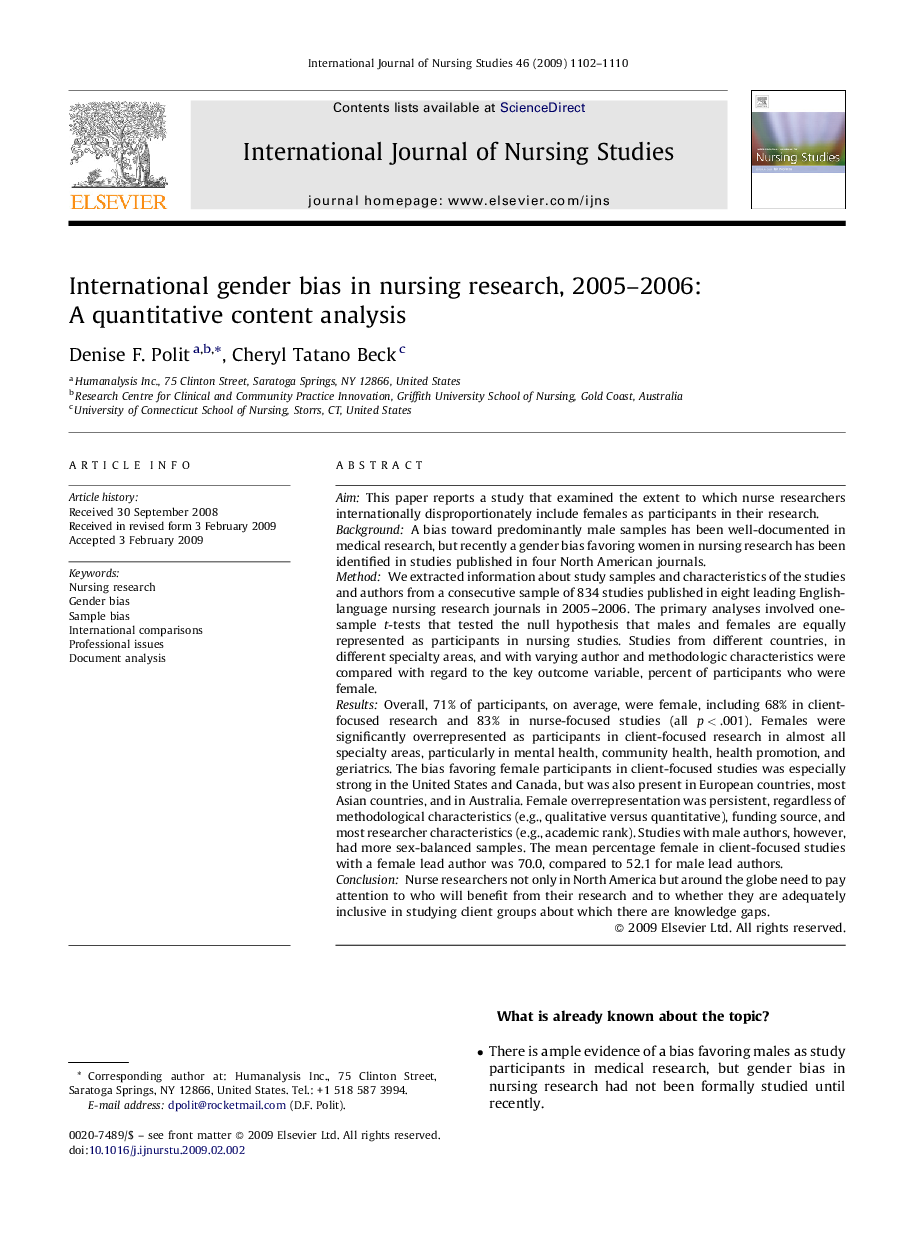| Article ID | Journal | Published Year | Pages | File Type |
|---|---|---|---|---|
| 1076556 | International Journal of Nursing Studies | 2009 | 9 Pages |
AimThis paper reports a study that examined the extent to which nurse researchers internationally disproportionately include females as participants in their research.BackgroundA bias toward predominantly male samples has been well-documented in medical research, but recently a gender bias favoring women in nursing research has been identified in studies published in four North American journals.MethodWe extracted information about study samples and characteristics of the studies and authors from a consecutive sample of 834 studies published in eight leading English-language nursing research journals in 2005–2006. The primary analyses involved one-sample t-tests that tested the null hypothesis that males and females are equally represented as participants in nursing studies. Studies from different countries, in different specialty areas, and with varying author and methodologic characteristics were compared with regard to the key outcome variable, percent of participants who were female.ResultsOverall, 71% of participants, on average, were female, including 68% in client-focused research and 83% in nurse-focused studies (all p < .001). Females were significantly overrepresented as participants in client-focused research in almost all specialty areas, particularly in mental health, community health, health promotion, and geriatrics. The bias favoring female participants in client-focused studies was especially strong in the United States and Canada, but was also present in European countries, most Asian countries, and in Australia. Female overrepresentation was persistent, regardless of methodological characteristics (e.g., qualitative versus quantitative), funding source, and most researcher characteristics (e.g., academic rank). Studies with male authors, however, had more sex-balanced samples. The mean percentage female in client-focused studies with a female lead author was 70.0, compared to 52.1 for male lead authors.ConclusionNurse researchers not only in North America but around the globe need to pay attention to who will benefit from their research and to whether they are adequately inclusive in studying client groups about which there are knowledge gaps.
